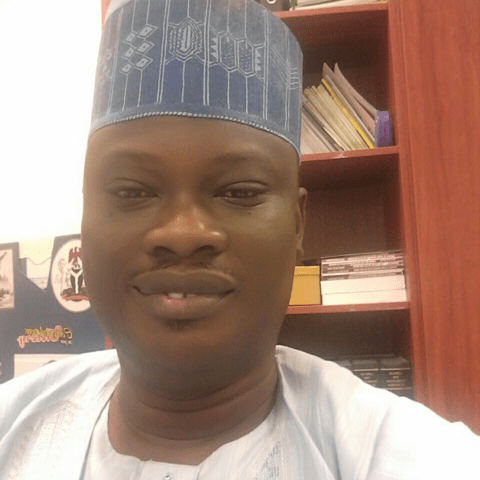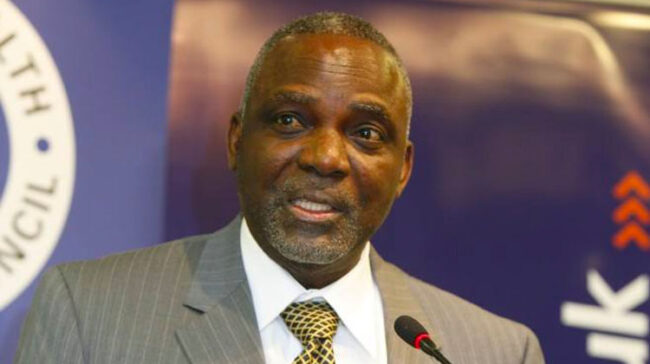Nigeria at 62: A People Divided in Unity, By Majeed Dahiru

Nigeria's central problem is not a problem of unity in diversity, but of division in unity. This division within unity is a function of specializing in minor differences but focusing on major similarities of the peoples and cultures of Nigeria. Nigeria, like China, Japan and Norway, is a monoracial entity that hardly qualifies as a diverse country but rather a plural country; a plurality of the same precolonial linguistic and cultural common good.
More than a century after being removed from the African Kingdom of Benin and kept at Jesus College, Cambridge, Okukor, a stature of a bronze rooster, finally returned home to the palace of Ewuare II, Oba of Benin, some time in 2021. A British punitive expedition in 1897 to avenge the murder of Captain Philip of the Royal Niger Company, who was killed by the natives for attempting to violate an important ritual of the Kingdom of Benin, destroyed one of the more advanced civilizations. And the hallmark of Beninese civilization was its very sophisticated knowledge of metalwork, with a specialization in the stylistic use of bronze, which is said to have been introduced into the kingdom by Oba Oguola, as a means of historical documentation.
Characterized by plunder and plunder, as the British expedition resulted in the banishment of the reigning Oba Ovonranwem Nobaisi from Benin to Calabar, the many bronze works of art that abounded in the ancient African kingdom were looted by the forces of the expedition, transported far away and preserved in museums in Europe and North America. After many years of concerted demands from Africans concerned for the return of looted works of art from ancient African civilizations to Africa, Okukor was returned to the Kingdom of Benin, from Jesus College, where it had been on display since 1905. .
However, what should have been a moment of joy for Nigerians at the safe return of a precious artefact, has become a source of acrimony and dispute over the proper name of dear old 'Okukor'. The controversy began when palace officials from the Kingdom of Benin insisted that the correct name of the returned artifact was not "Okukor" but "Okhokho" because the former is an Igbo word, while the is Bini (the language of the kingdom). And just before the dust settled on the Igbo "Okukor" or the Bini "Okhokho", "Akuko", a Yoruba word for rooster, was thrown into the mix as the artifact's most likely original name. . Then came the Ebira "ukokoro", Igala "aiko", Efik "Akikor" and many other synonyms of "Okukor" from other parts of Nigeria. In all these different nomenclatures of the rooster among the many ethnic groups in the country, Nigerians have once again focused on minor differences, while downplaying major similarities between the peoples and culture of modern Nigeria.
While the controversy over the proper name of the returned artefact was intended to highlight the differences between the Nigerian people, it ironically reveals deep similarities and commonalities between the different peoples and cultures of Nigeria. The Okukor, Okhokho or Akuko controversy reveals that Nigerians are essentially one people whose more than 500 spoken languages are just variations of a super Nigerian language…
Sixty-two years after independence, Nigeria remains a country deeply divided along ethnic and religious lines; a situation that has slowed, if not reversed, the country's journey to nationhood. Just as a house is not always a home, a country is not always a country...


Nigeria's central problem is not a problem of unity in diversity, but of division in unity. This division within unity is a function of specializing in minor differences but focusing on major similarities of the peoples and cultures of Nigeria. Nigeria, like China, Japan and Norway, is a monoracial entity that hardly qualifies as a diverse country but rather a plural country; a plurality of the same precolonial linguistic and cultural common good.
More than a century after being removed from the African Kingdom of Benin and kept at Jesus College, Cambridge, Okukor, a stature of a bronze rooster, finally returned home to the palace of Ewuare II, Oba of Benin, some time in 2021. A British punitive expedition in 1897 to avenge the murder of Captain Philip of the Royal Niger Company, who was killed by the natives for attempting to violate an important ritual of the Kingdom of Benin, destroyed one of the more advanced civilizations. And the hallmark of Beninese civilization was its very sophisticated knowledge of metalwork, with a specialization in the stylistic use of bronze, which is said to have been introduced into the kingdom by Oba Oguola, as a means of historical documentation.
Characterized by plunder and plunder, as the British expedition resulted in the banishment of the reigning Oba Ovonranwem Nobaisi from Benin to Calabar, the many bronze works of art that abounded in the ancient African kingdom were looted by the forces of the expedition, transported far away and preserved in museums in Europe and North America. After many years of concerted demands from Africans concerned for the return of looted works of art from ancient African civilizations to Africa, Okukor was returned to the Kingdom of Benin, from Jesus College, where it had been on display since 1905. .
However, what should have been a moment of joy for Nigerians at the safe return of a precious artefact, has become a source of acrimony and dispute over the proper name of dear old 'Okukor'. The controversy began when palace officials from the Kingdom of Benin insisted that the correct name of the returned artifact was not "Okukor" but "Okhokho" because the former is an Igbo word, while the is Bini (the language of the kingdom). And just before the dust settled on the Igbo "Okukor" or the Bini "Okhokho", "Akuko", a Yoruba word for rooster, was thrown into the mix as the artifact's most likely original name. . Then came the Ebira "ukokoro", Igala "aiko", Efik "Akikor" and many other synonyms of "Okukor" from other parts of Nigeria. In all these different nomenclatures of the rooster among the many ethnic groups in the country, Nigerians have once again focused on minor differences, while downplaying major similarities between the peoples and culture of modern Nigeria.
While the controversy over the proper name of the returned artefact was intended to highlight the differences between the Nigerian people, it ironically reveals deep similarities and commonalities between the different peoples and cultures of Nigeria. The Okukor, Okhokho or Akuko controversy reveals that Nigerians are essentially one people whose more than 500 spoken languages are just variations of a super Nigerian language…
Sixty-two years after independence, Nigeria remains a country deeply divided along ethnic and religious lines; a situation that has slowed, if not reversed, the country's journey to nationhood. Just as a house is not always a home, a country is not always a country...
What's Your Reaction?






















